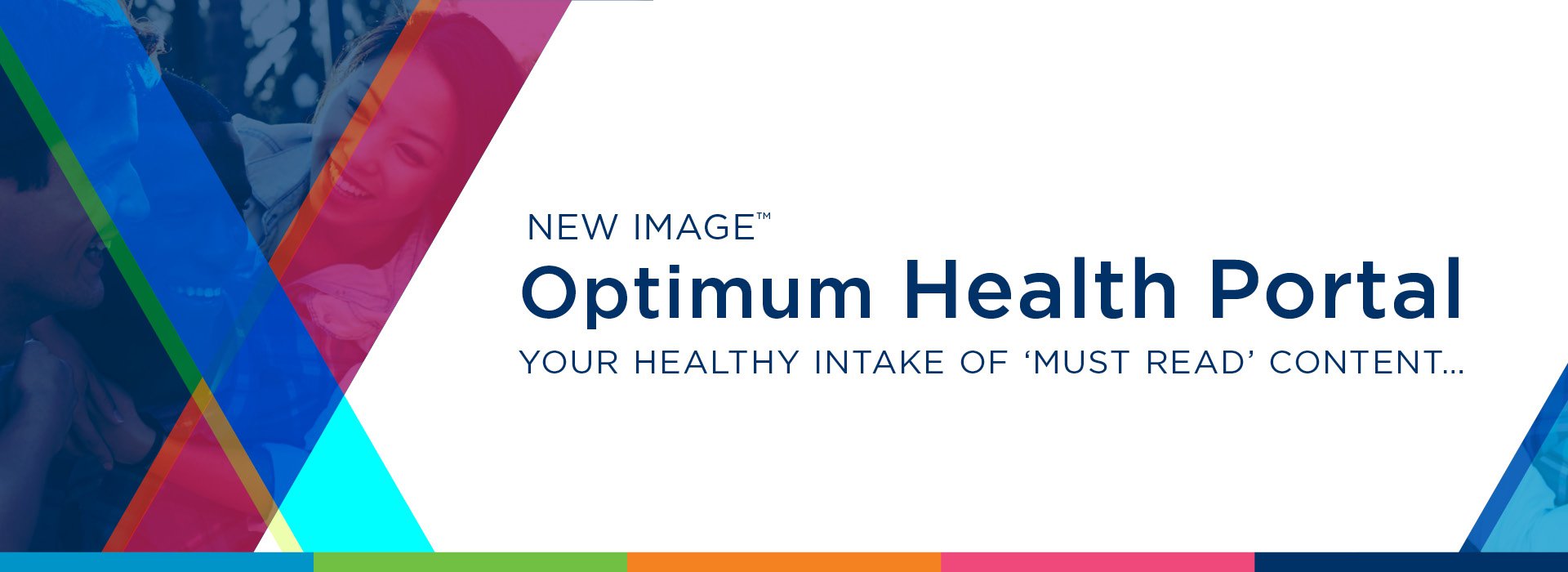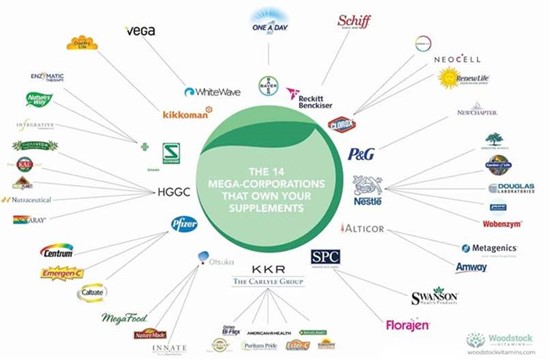

Everyone must push back in every market
• One of the latest attempts to thwart your ability to access nutritional supplements comes in the form of draft legislation (in the US) that would require premarket approval for dietary supplements. In short, it would require supplements — which are food — to undergo the same approval process as drugs
• In the past, the drug industry and the U.S. Food and Drug Administration has tried to ban certain supplements, including vitamin B6 and N-acetylcysteine (NAC), by reclassifying them as new drugs
• Another strategy the drug industry has been using to gain a monopoly over the supplement industry is to buy up supplement brands. Just 14 mega corporations — many of them drug companies — now own more than 100 of the most popular supplement brands on the market
• This monopoly over the supplement industry gives drug companies enormous regulatory influence, and that’s a way by which they could eliminate independent supplement makers who can’t afford to put their products through the drug approval process. Indeed, it seems that’s what the Durbin-Braun premarket approval proposal is trying to accomplish
• Take action to protect widespread access to dietary supplements. Contact your Senators and urge them to oppose the Dietary Supplement Listing Act of 2022, and its inclusion in the FDA Safety Landmark Advancements Act
The fight over vitamin B6 (pyroxidine) is one example of how Big Pharma tried to eliminate a natural substance that stood in the way of a drug patent. In 2007, Medicure Pharma submitted a citizen's petition to the FDA in which it argued that any dietary supplement containing pyridoxal 5'-phosphate — vitamin B6 — were "adulterated" under the Federal Food, Drug and Cosmetic Act, article 402(f)
In essence, Medicure wanted all vitamin B6 products banned, because they undermined the company's incentive to continue development of its drug version of B6.
Medicure had gotten wise to vitamin B6's effectiveness against ischemia (inadequate blood flow) and decided to make a drug out of it by simply renaming the vitamin "MC-1." They entered it into the drug bank and then argued that B6 supplements contained "their" MC-1. The drug bank even admits the renamed vitamin B6, i.e., MC-1, is:4
"... a biologically active natural product which can be regarded as a chemical entity that has been evolutionarily selected and validated for binding to particular protein domains."
The main reason why drug companies engage in this kind of sleight of hand is because once a substance is classified as a drug, you can jack up the price by 1,000% over the supplement's typical retail.5
Perhaps the most recent example of the FDA trying to shut down easy access to nutritional supplements was its 2020 attack on N-acetylcysteine (NAC). NAC has been a widely-used dietary supplement for six decades, yet the FDA suddenly decided to crack down on it in late July 2020 — right after it was discovered how useful it was for the prevention and treatment of COVID-19.6
According to the FDA, NAC was excluded from the definition of a dietary supplement because it had been approved as a new drug in 1963.7 But if that was the case, why did they wait until 2020 to take action?
As reported by NPI at the time,8 there were more than 1,170 NAC-containing products in the National Institutes of Health's Dietary Supplement Label Database when the FDA started sending out warning letters9 to companies that marketed NAC as a remedy for hangovers.
Members of the Council for Responsible Nutrition also worried the FDA might start to target NAC more widely. So far, that hasn't happened, but Amazon immediately stopped selling all NAC products after those warning letters went out, whether the sellers marketed it as a hangover remedy or not.
Also, the selection of "hangover" for those warning letters seemed arbitrary at best. The fact is that several scientists had called attention to NAC's benefits against COVID, and shortly afterward, the FDA came up with this ridiculous excuse to limit the availability of it. It just smacked of conflict of interest.
Another strategy the drug industry has been using to gain a monopoly over the supplement industry is by simply buying up supplement brands. Nestlé Health Science, for example, has acquired Garden of Life, Vital Proteins, Nuun, Pure Encapsulations, Wobenzym, Douglas Laboratories, Persona Nutrition, Genestra, Orthica, Minami, AOV, Klean Athlete and Bountiful.10
Bountiful, in turn, owns brands like Solgar, Osteo Bi-Flex, Puritan's Pride, Ester-C and Sundown, all of which are now under Nestlé's control. The Bountiful brands alone generated net sales of $1.87 billion in the 12 months ending March 31, 2021, so the $5.75 billion agreement to acquire a majority stake, signed in August 2021, didn't necessarily burn a big hole in Nestlé's pocket. According to J.P. Morgan analyst Celine Pannuti, quoted by Natural Products Insider:11
"Through the acquisition of The Bountiful Co., Nestlé can build a 'leading position' in the 'fragmented category' for vitamins, minerals, and supplements, which 'has delivered the highest and most consistent growth in consumer health care over the past 10 years.'"
In all, a mere 14 mega corporations — many of them drug companies — now own more than 100 of the most popular supplement brands on the market. The graphic below is from Neal Smoller, PharmD, the holistic pharmacist's website.12
It doesn't show the ownership of all available brands, but it gives you an idea of just how small the ownership circle has become. As noted by Smoller, many competing brands are even owned by the same corporation, rendering the notion of free market competition null and void.

Importantly, owning the lion's share of supplement companies puts the drug industry in a unique position to get rid of them whenever they so desire. They could intentionally make the company tank simply by cutting advertising, for example. Cutting quality could have a similar effect, while simultaneously cheating customers who rely on dietary supplements for optimal nutrition and health.
Most important of all, however, this monopoly over the supplement industry gives drug companies enormous regulatory influence, and that's a way by which they could eliminate independent supplement makers who can't compete financially. Indeed, that seems to be what the Durbin-Braun proposal is all about.
Supplements Have Phenomenal Safety Profiles
Supplements Are the Safest Foodstuffs Available
Nutritional supplements are the safest foodstuffs available; adverse reactions to pharmaceutical drugs are 62,000 times more likely to kill you than nutritional supplements.
Any opinions, views and beliefs represented in this article are personal and belong solely to the author/s and do not necessarily reflect the opinion, views and beliefs of the organisation and employees of New Image™ International